Starting an online store sounds exciting. But choosing the right store builder? That part can feel overwhelming.
I’ve been in your shoes. I wanted something that’s easy to use, doesn’t cost a fortune, and actually works. So, I rolled up my sleeves and tested 7 of the most talked-about online store builders out there.
Some were great. Some were… not so beginner-friendly. But one stood out from the rest.
In this blog, I’ll walk you through each builder I tried, what I liked, what I didn’t, and who I think should use them. If you’re planning to launch your online store in 2025, this guide will save you time and help you make the right call.
So let’s get started!
What to Look for in an Online Store Builder
I’ve tested a bunch of store builders over the years. Some looked great at first but fell apart when I actually tried building a store. Others were smooth from start to finish.
If you’re just starting out, here’s what I think you should focus on.
- Scalability is key: I’ve started with small stores and then added more products, pages, or vendors. A good platform should let me grow without forcing a full rebuild later.
- It has to be beginner-friendly: I don’t enjoy spending hours figuring out where everything is. A good builder should be simple, clean, and easy to set up, even if you’ve never built a website before.
- Design freedom matters: I like having options. The store should feel like mine, not a copy of every other template. So, I always check if I can change layouts, fonts, and colors without touching any code.
- Speed is a dealbreaker: I’ve seen how slow sites kill sales. If the builder doesn’t give me a fast-loading store, it’s an instant no. Your visitors won’t wait, and neither should you.
- Payment flexibility is a must: I always test how smooth the checkout feels. Can I connect PayPal or Stripe without messing with settings? Can my customers use credit cards or digital wallets? If it’s a pain to set up, it’s not worth it.
- Built-in marketing tools help a lot: When a builder has SEO settings, email tools, or social sharing features, I know I’ll save time later. I don’t want to pay for 5 different plugins just to send a newsletter or boost traffic.
- Good support makes a difference: I’ve had things break at the worst times. So I always check if there’s live chat, fast email replies, or detailed docs. Having real help when you need it? Huge win.
- Watch out for hidden costs: I’ve used builders that seemed cheap, but then they charged extra for basic features. So now, I always check the fine print before committing to a plan.
Now, let’s find the best online store builders for 2025!
7 Best Online Store Builders That I Tried for 2025
I’ve tested a lot of online store builders. Some were fast but limited. Some were powerful but felt like a maze. After trying them all, I narrowed it down to 7 solid options that actually deliver.
Each one has its own strengths, but if you’re starting fresh and want a smooth experience, these are the tools I’d recommend:
- Dokan Cloud
- Shopify
- Wix
- BigCommerce
- Squarespace
- WooCommerce
- Ecwid by Lightspeed
Now, let’s jump into the details!
01. Dokan Cloud – Best for Beginners
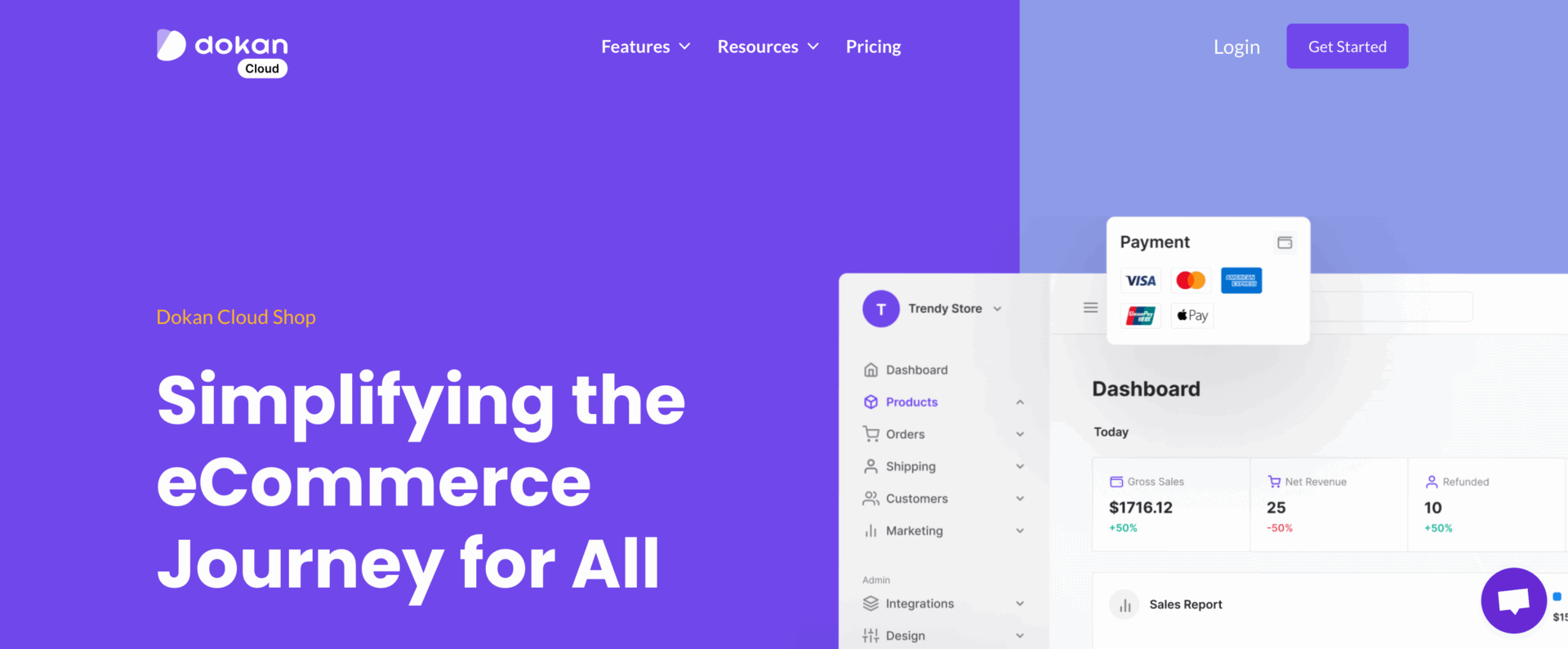
Out of all the tools I tried, Dokan Cloud Shop was the one that impressed me the most—especially for someone just getting started.
The setup was quick. I didn’t have to worry about hosting or domain settings. Everything came built-in. I picked a template, added my products, and my store was live in no time. No coding. No plugins. No stress.
The dashboard is super clean. I could handle everything – inventory, orders, discounts – from one place. It felt like the platform actually wanted me to succeed instead of overwhelming me with features I didn’t need.
What stood out the most was how flexible it is. I tested it with a small product catalog, then added more to see how it scaled. It handled everything smoothly. And if I wanted to switch to a multivendor setup in the future, it’s already part of the same ecosystem. That’s a bonus.
For beginners, this just works. If you’re looking for something fast, reliable, and built specifically for store owners who don’t want to deal with tech headaches, Dokan Cloud Shop is the one I’d start with.
Features I Like Most About Dokan Cloud
- Fully hosted solution. I didn’t have to deal with hosting or security.
- Simple drag-and-drop editor to customize my store.
- Inventory, order tracking, coupons—all built-in.
- Easy for first-timers but powerful enough to scale later.
Things I Dislike About Dokan Cloud
- Fewer third-party app integrations compared to older platforms.
- Limited design templates, but they cover the basics well.
- Would love more built-in analytics and reporting.
Who Should Use Dokan Cloud
Dokan Cloud is ideal for beginners who want a simple, ready-to-use store. If you don’t want to deal with hosting, plugins, or tech setup, this is a great place to start.
02. Shopify – Most Popular Choice for Serious Sellers

Shopify was one of the first tools I tried years ago. And even today, it still holds up. It’s fast, powerful, and built to handle pretty much any kind of online store.
What I liked most was how polished everything felt. From product management to payment setup, everything works smoothly. Plus, there’s an app for almost anything. I wanted advanced shipping rules, one-click upsells, custom design tweaks – I found apps for all of it.
It’s not the cheapest option out there, but you do get what you pay for. It’s built for people who are serious about growing a business and don’t mind investing a bit more for solid tools.
Features I Like Most About Shopify
- Huge app store to add advanced features easily
- Reliable hosting with strong security
- Excellent support and detailed documentation
- Scales well for both small and large businesses
Things I Dislike About Shopify
- Monthly fees can stack up quickly, especially with add-ons
- Customization beyond the theme editor often needs code
- It could be overwhelming for beginners
Who Should Use Shopify
Shopify is a good fit for anyone who’s ready to take eCommerce seriously. If you plan to grow fast, want lots of customization options, or need strong backend tools, Shopify is built for that.
03. Wix – Best for Design Flexibility

Wix feels like a dream for anyone who loves to tweak and design things their own way. I had full control over the layout, colors, fonts – everything. The drag-and-drop editor gave me total freedom to place things exactly how I wanted.
I tested Wix with a small store setup, and it handled products, payments, and shipping smoothly. You can also automate some marketing tasks, like email campaigns and abandoned cart recovery. It’s not just pretty – it’s functional too.
But where Wix really shines is design. If you want a store that looks unique and truly reflects your brand, Wix gives you the space to do that without touching code.
Features I Like Most About Wix
- Drag-and-drop builder with full design freedom
- Lots of modern templates and style options
- Built-in tools for SEO, email marketing, and analytics
- Works well for both small stores and service-based businesses
Things I Dislike About Wix
- Too much design freedom can get overwhelming
- Less focused on pure eCommerce than Shopify or Dokan Cloud
- You have to upgrade for more advanced store features
Who Should Use Wix
Wix is great for creative sellers who want full control over how their store looks. If design matters to you and you want something easy to build without needing a developer, Wix is worth checking out.
04. BigCommerce – Best for Growing Brands
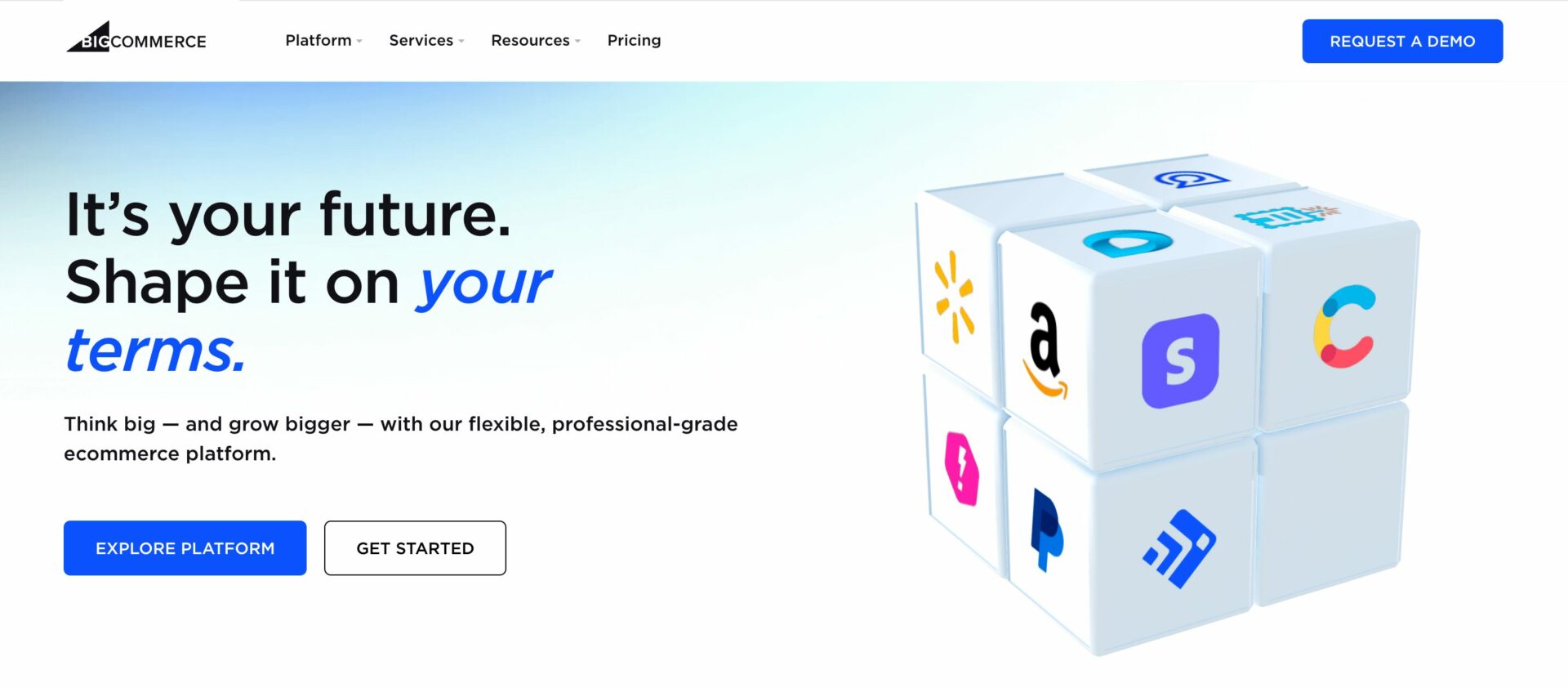
BigCommerce gave me a serious business vibe right from the start. It’s built for sellers who are ready to scale. I tested it with a mid-size store setup, and it handled everything from bulk product uploads to advanced tax settings without any issues.
It comes with more built-in features than most platforms, so you don’t need to rely on tons of apps. I also liked how it integrates with major marketplaces like Amazon and eBay. That’s a big plus if you want to sell in multiple places at once.
It’s not the easiest to customize without dev help, but it’s strong where it counts: performance, flexibility, and growth.
Features I Like Most About BigCommerce
- Built-in tools for SEO, multi-channel selling, and product filtering
- No extra transaction fees
- Scalable performance for large catalogs
- Good for international selling with native multi-currency support
Things I Dislike About BigCommerce
- Learning curve can be a bit steep
- Design options are more limited compared to Wix
- Plans are pricey as you scale
Who Should Use BigCommerce
BigCommerce is a solid choice for growing businesses that need more power under the hood. If you’re planning to sell across multiple channels and handle a large product catalog, it’s made for that kind of growth.
05. Squarespace – Best for Stunning Visuals
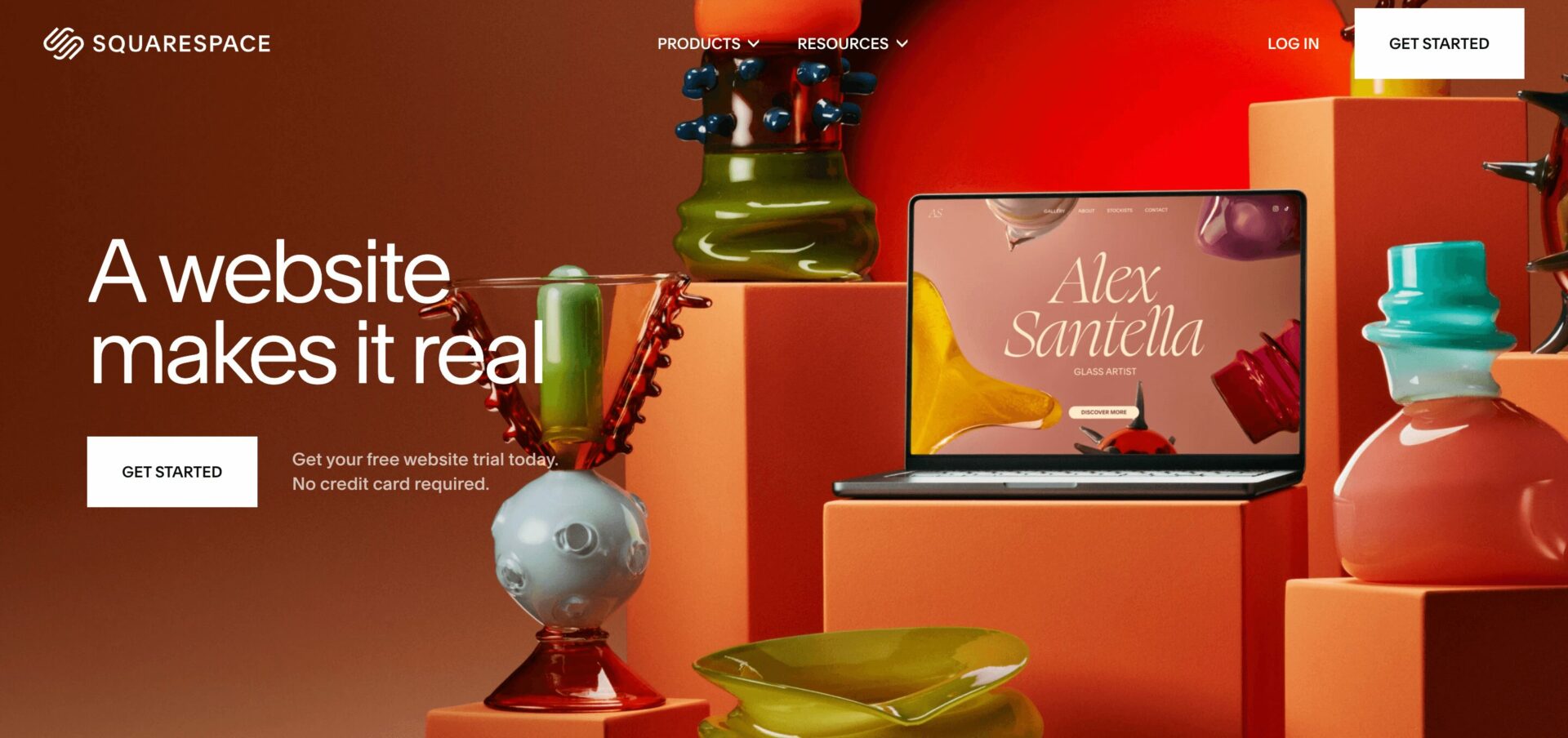
If you’re all about clean, beautiful design, Squarespace is a great pick. I loved how quickly I could create a stylish store without having to learn design or coding. The templates are gorgeous, and they look just as good on mobile devices as on desktops.
Squarespace makes it easy to manage products, track orders, and handle payments. But where it really stands out is its aesthetic. If you’re a seller in an industry like fashion, art, or photography, your store will look professional with minimal effort.
It’s not as robust as Shopify or BigCommerce in terms of eCommerce features, but for smaller stores, it does the job really well.
Features I Like Most About Squarespace
- Beautiful, mobile-friendly templates with lots of customization options
- Easy-to-use store management and order tracking
- Great for visual-focused stores (art, photography, fashion)
- Built-in SEO tools to help get your store found
Things I Dislike About Squarespace
- Limited payment gateways and shipping options
- Less advanced eCommerce tools compared to other platforms
- Higher price tag for features that aren’t always necessary
Who Should Use Squarespace
Squarespace is perfect for small businesses or creatives who want a visually appealing store with minimal effort. If you’re looking for something easy, beautiful, and don’t need advanced eCommerce features, Squarespace is a solid option.
06. WooCommerce – Best for Full Control on WordPress
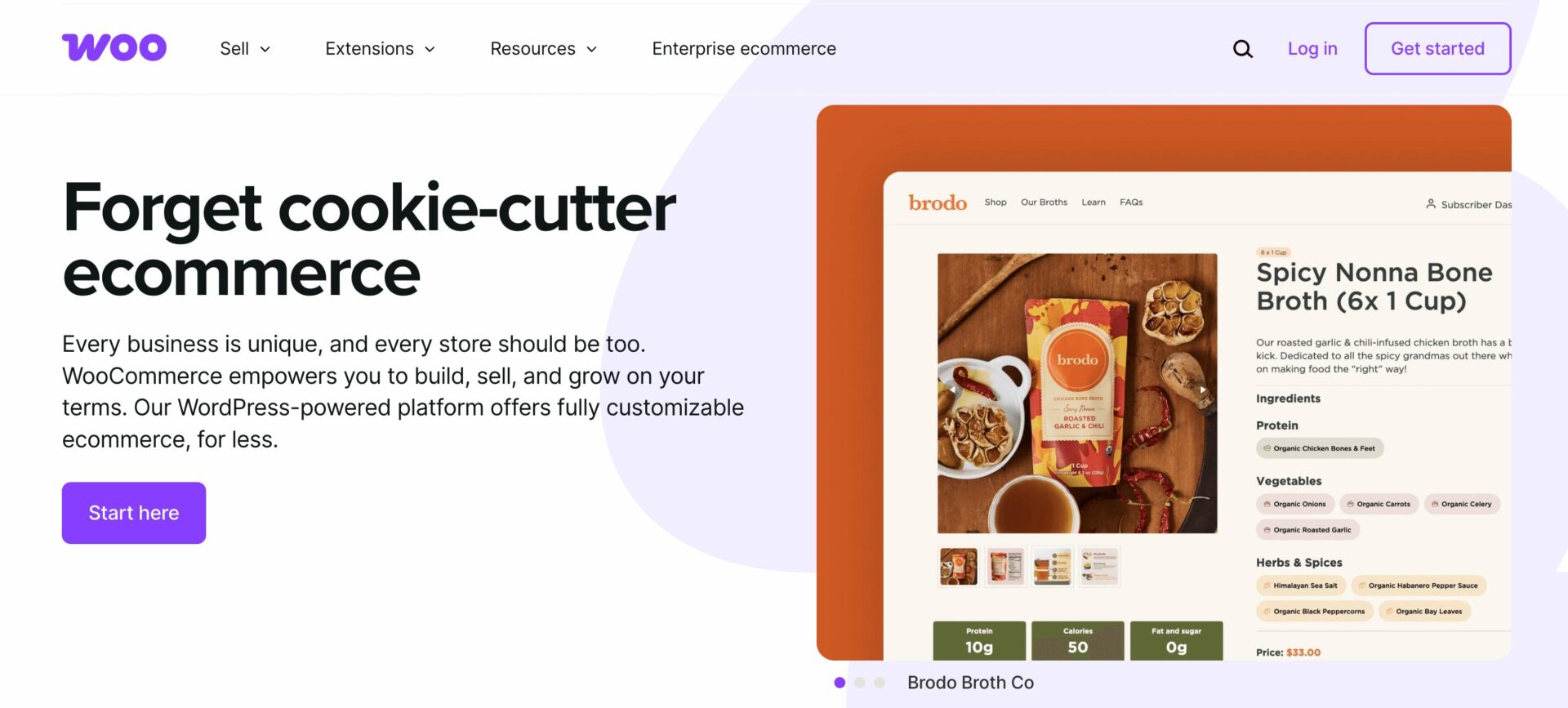
WooCommerce felt more like a toolkit than a plug-and-play builder. It runs on WordPress, so I had to set that up first. But once I got it running, I realized how flexible it is. I could customize every part of my store—products, checkout, shipping—you name it.
It works great with tons of plugins, so you can keep adding features as your store grows. And because it’s open-source, there are no limits to what you can build. But it does require a bit of tech know-how, or at least the patience to figure things out.
If you’re already using WordPress or planning to blog alongside your store, WooCommerce fits right in.
Features I Like Most About WooCommerce
- Full control over how the store looks and works
- Huge plugin library to extend functionality
- Great for combining content and eCommerce
- No platform fees—you only pay for hosting and extras you add
Things I Dislike About WooCommerce
- Needs regular updates and maintenance
- Can be tricky for beginners without tech experience
- Some features require paid extensions
Who Should Use WooCommerce
WooCommerce is ideal for WordPress users who want full freedom to build and customize their store. If you’re not afraid of plugins and a little setup work, it gives you a lot of power without monthly platform fees.
07. Ecwid by Lightspeed – Best for Adding a Store to an Existing Website
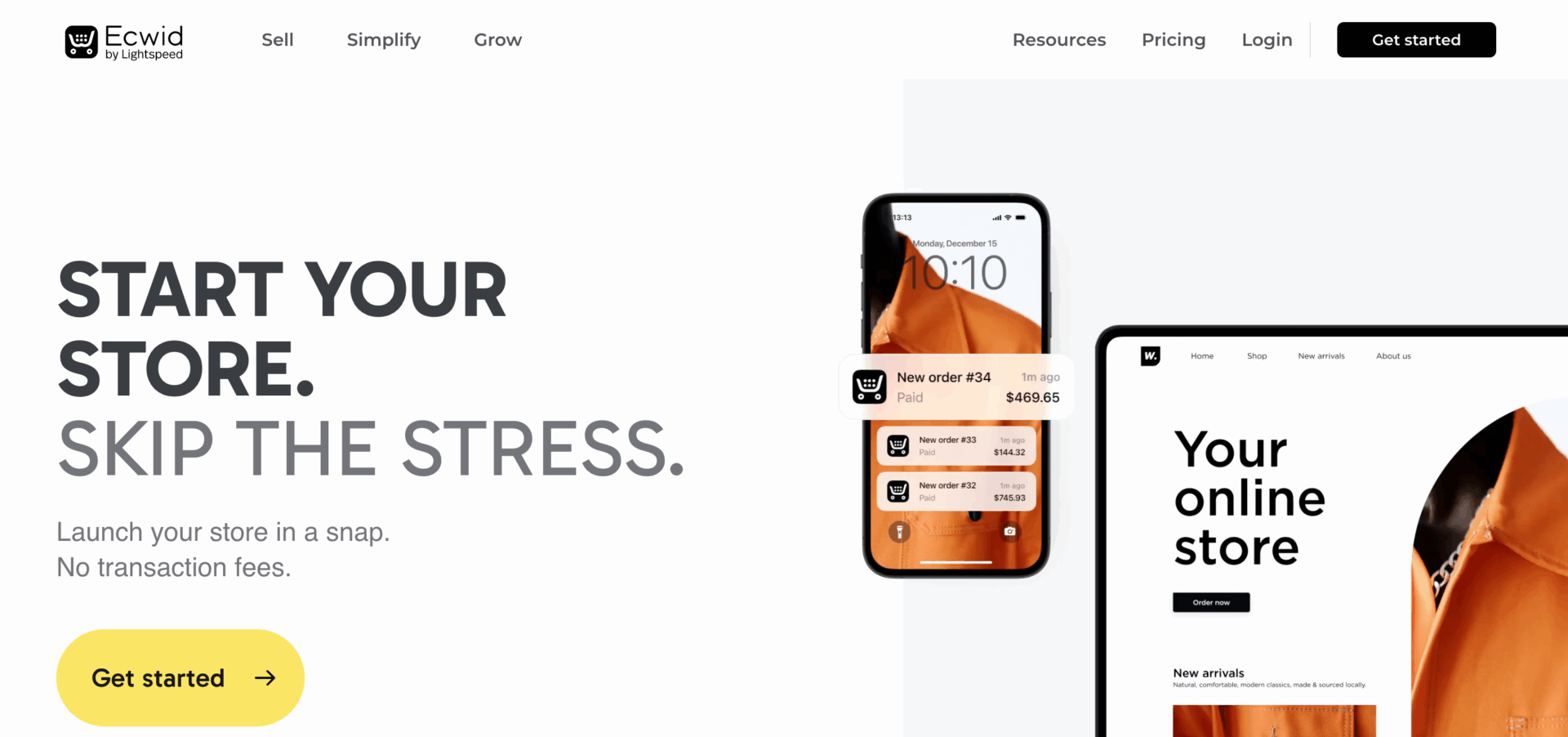
Ecwid surprised me in a good way. It’s not your typical store builder. Instead of making you build a whole new site, it lets you add a store to a site you already have. I tried it on a basic website, and within minutes, the store was up and running.
It works well with platforms like WordPress, Wix, and even Facebook or Instagram. You just copy a code snippet, and your store shows up right there. Super handy if you don’t want to start from scratch.
It’s not packed with advanced features like Shopify or BigCommerce, but it covers the basics well.
Features I Like Most About Ecwid
- Easy to embed into any existing website
- Multi-channel selling (Facebook, Instagram, marketplaces)
- Clean, simple backend for managing products and orders
- Free plan available with core features
Things I Dislike About Ecwid
- Limited design flexibility compared to full builders
- Advanced features need a paid plan
- Not ideal if you want to build a store-first business
Who Should Use Ecwid
Ecwid is perfect if you already have a website or social media presence and want to start selling without rebuilding everything. It’s great for side hustles, small stores, or anyone who just wants to get started fast.
Best Online Store Builder – My Recommendation
After trying all 7 tools, Dokan Cloud stood out the most.
Why? It’s simple. It gives you everything you need to launch a fully functional online store without making things complicated. The setup was smooth. The dashboard felt clean. I didn’t have to spend hours learning how things work.
The pricing is also beginner-friendly. You don’t need to pay extra for every small feature. Most of the essentials are already included. Plus, the designs are modern, responsive, and easy to customize.
What really impressed me is how beginner-focused it is. No steep learning curve. No unnecessary clutter. Just the right tools to start selling online fast.
If you’re looking for the best value for your money, Dokan Cloud is the one I’d recommend without a doubt. Especially if you’re new to eCommerce and want a smooth experience from day one.
Which Solution Are You Going to Choose?
All 7 builders I tried are solid in their own way. Some are great for total freedom. Some are better for visual design. Others focus on adding a store to what you already have.
But if you’re just starting out and want something easy, fast, and reliable, Dokan Cloud is my pick.
It saves time. It doesn’t drain your wallet. And it lets you focus on your business instead of figuring out tech stuff.
Now it’s your turn. Think about what you need. Pick the one that fits your style. And share it with us using the comment box below. We would love to know about your favorite online store builder. Happy selling!
Subscribe to
Dokan blog
We send weekly newsletters, no spam for sure!

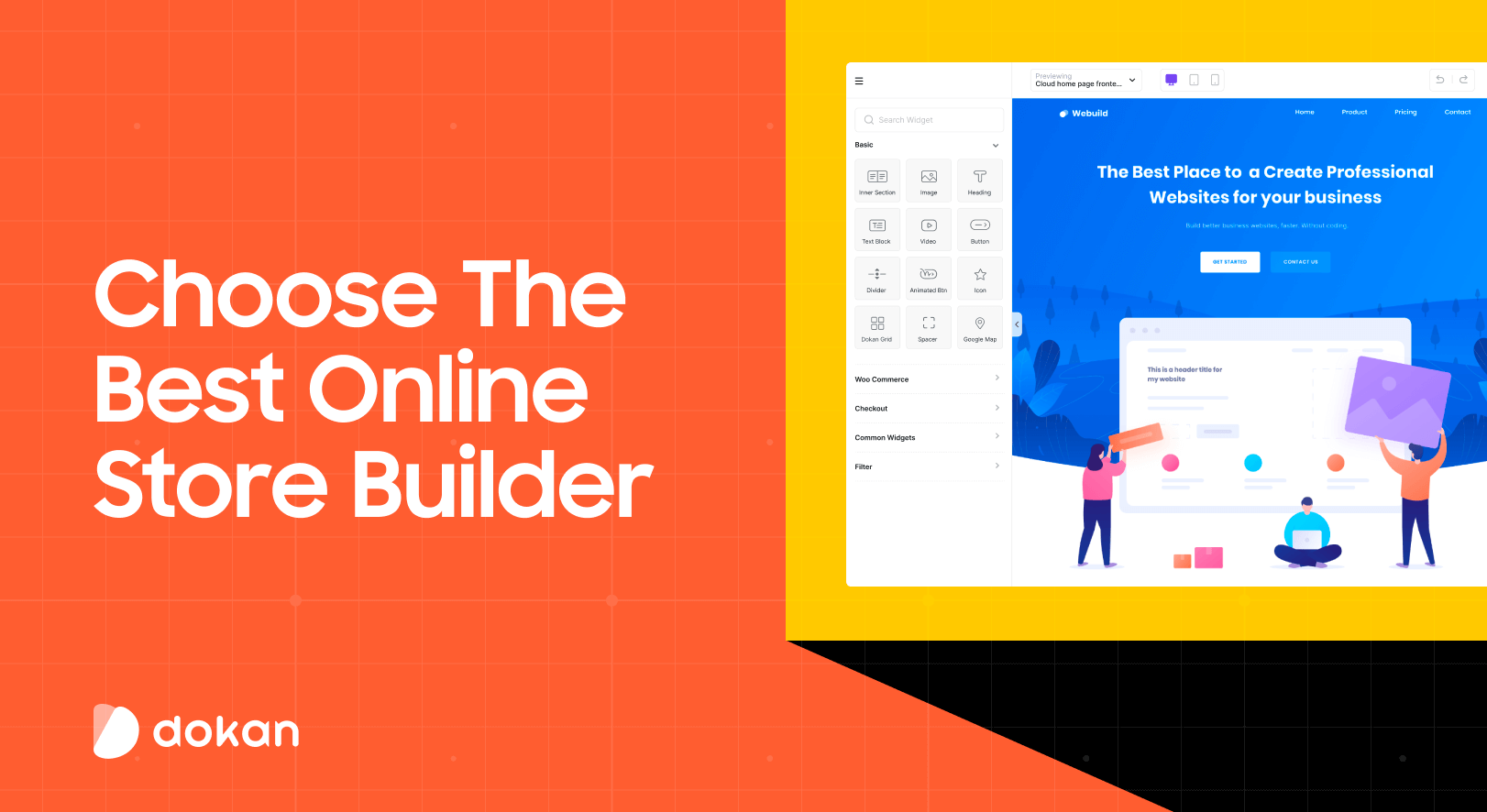
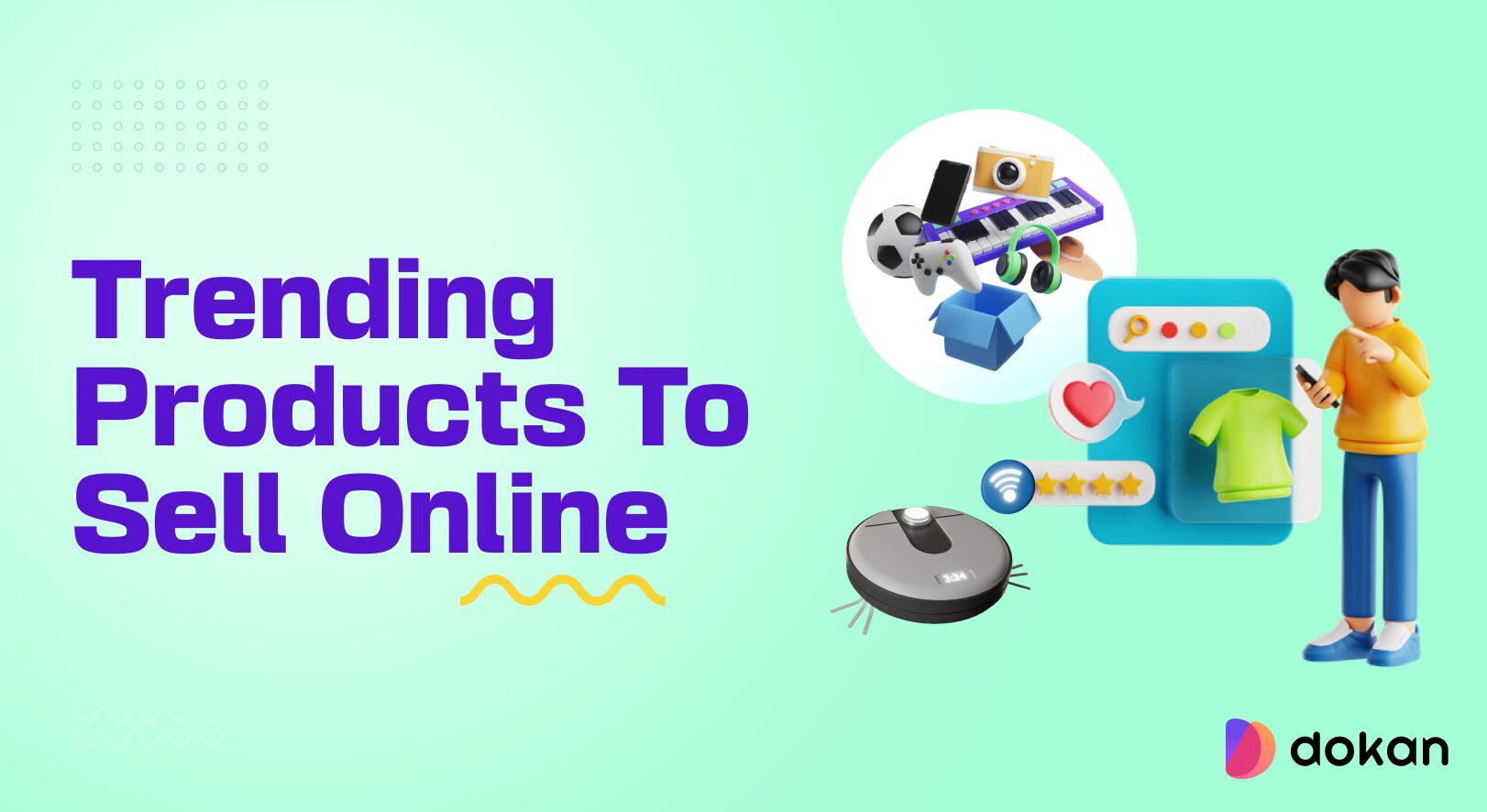
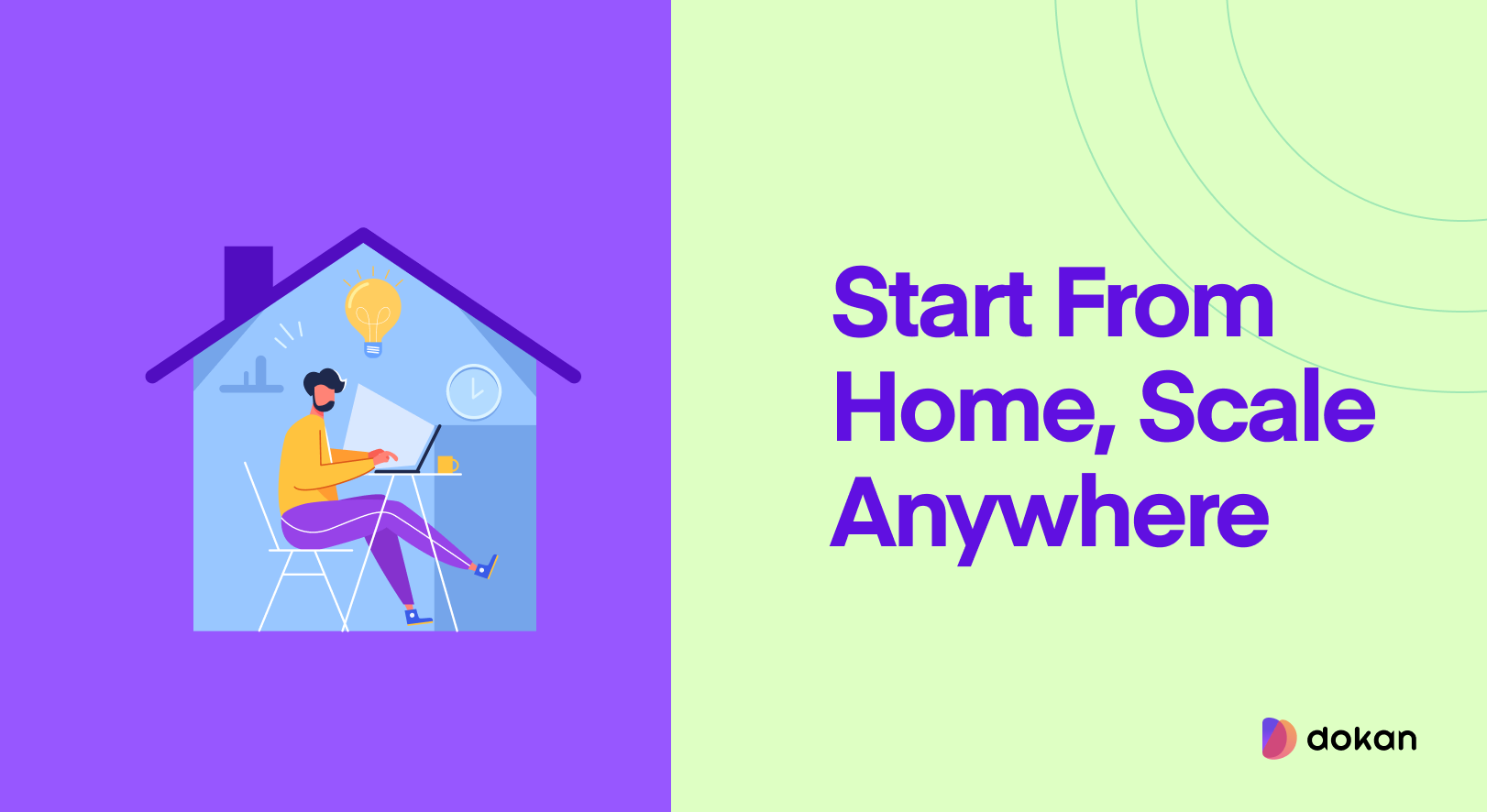



Leave a Reply